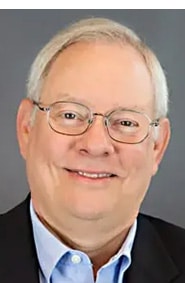By Chris Moon
The merger of Central Christian College of the Bible and St. Louis Christian College is in its final stages, with the two Restoration Movement schools slated to join forces by about June 1.
“That’s our goal right now,” said CCCB president David Fincher.
The merger, first announced last fall, provides a soft landing for the struggling SLCC while at the same time giving new inroads into the St. Louis market for CCCB.
Central Christian College of the Bible is in Moberly, Mo.—just more than two hours’ drive time from St. Louis Christian College’s campus.
Now, CCCB is looking to absorb most of the 60 students who remain enrolled at SLCC.
“It looks like well over 90 percent of our students will be there [in Moberly] next fall,” said SLCC president Terry Stine.
Other details of the merger are being finalized as well.
SLCC’s campus is in the process of being put up for sale. CCCB is planning to lease a smaller facility where it will offer classes in the St. Louis metro.
Meanwhile, about 7 of SLCC’s 17 employees will be taking jobs with CCCB. A couple of those have teaching responsibilities. Others work in various support roles, including fundraising and constituent relations.
And a $1.1 million endowment fund from SLCC will be managed by The Solomon Foundation. Stine said the fund is expected to provide $65,000 in scholarships each year to CCCB students who come from the St. Louis area.
A MERGER OF NECESSITY
The two colleges entered merger talks as SLCC’s enrollment dwindled, including an unexpected drop at the beginning of the last school year.
Last fall, 43 out of 100 students decided not to come to SLCC, canceling their registrations just two weeks before the start of class, said Stine, who has led SLCC for the past five years. For the 2014-15 school year, SLCC reported enrollment of 150 to Christian Standard.
Stine lays most of the blame for declining enrollment at the feet of the social unrest and crime that has affected the St. Louis metro in recent years. In September, SLCC and CCCB issued the merger announcement.
By pursuing a merger while SLCC remains financially viable, the college can send its remaining resources to CCCB to further build up that school, Stine said.
SLCC’s campus soon will go up for sale.
The property is owned by The Solomon Foundation after a gift-leaseback transaction with SLCC three years ago, Stine said. TSF is a church extension fund that serves the fellowship of Christian churches and churches of Christ and their affiliated ministries.
That deal with The Solomon Foundation retired SLCC’s debt, provided it with some operating cash, and reduced its monthly expenses, Stine said. The college would have purchased the campus back from TSF had it been able to turn things around.
According to an appraisal document, about 30 acres are slated to be sold. The property includes nine buildings, most of them constructed in the 1960s and 1970s.
A NEW CAMPUS ON LEASE
CCCB won’t be acquiring the campus.
“Our educational mission didn’t require us to own a metropolitan property,” said Fincher, CCCB’s president.
Instead, CCCB has signed a letter of intent to lease 6,000 square feet in a building in Maryland Heights, a suburb of St. Louis. Fincher declined to release the address of the property because the seven-year lease has not been finalized.
The building will be used for night classes and weeklong graduate classes. Eventually, CCCB will have a day class program in the building.
For CCCB, the merger represents an opportunity to reach into an urban area with affordable ministry training.
Fincher said he estimates “a high percentage” of the membership of independent Christian churches and churches of Christ are in large metropolitan areas. Many of those are far from Restoration Movement colleges, which often are in smaller, rural towns.
Because it’s difficult to convince metro students to move outside the city for their education, it will be more difficult for rural colleges to sustain their enrollment without having an alternative within the metropolitan area.
So, the leased campus facility in St. Louis is one way to meet those students’ needs—and without the big costs associated with a fully residential campus.
Fincher said the goal is to accomplish “90 percent of the educational mission at [one]-tenth of the expenses.”
“That’s the strategy,” he said.
NOT ENOUGH TIMOTHYS
Stine said he declined an offer to take a position with CCCB. He said he’s had discussions with some churches and parachurch organizations about job possibilities, but at this point he hasn’t decided his next move.
But Stine did offer a broad, reflective view on the struggles of Restoration Movement’s colleges. He said young people generally are not being encouraged to enter the ministry by their pastors or their families.
“Ministers are no longer encouraging students like they used to,” Stine said. “Most of us went to Bible colleges because our minister encouraged us. Ministers today don’t.”
He said churches used to have “Timothy halls” to document their members who ended up in the ministry, usually after going to Bible college. Those halls are now “covered in cobwebs and dust,” Stine said.
The results are showing themselves in the numbers.
Stine said almost every Restoration Movement college has experienced declining enrollment during the past five years.
“We just happened to start from a low number,” he said of SLCC.
The recent struggles of other colleges—including the closures of Nebraska Christian College and Cincinnati Christian University—have been well-documented. Lincoln (Ill.) Christian University recently announced it would revamp its educational model.
Stine said he doesn’t believe efforts by churches to raise up and educate their own leaders in-house will sufficiently replace a Bible college education.
But Stine also said he has reminded his staff that while the situation appears bleak today, hope exists.
“God still sits on the throne, and he is still in control,” he said.
Chris Moon is a pastor and writer living in Redstone, Colorado.
The colleges’ most recent merger “progress report” is posted here.



As an Ozark grad I have been well aware of the struggles of these two colleges. This sounds like a well-thought out solution to those problems, but I am discouraged at what Terry and David are seeing, along with the rest of us, that young people are no longer being encouraged to consider ministry as a life vocation. Having spent 36 years in that field and having a son who followed in my footsteps, I understand the pit-falls and struggles as well as anyone. We need to make this a matter of serious prayer!
Consider an article each month in the Standard on Creation Science, recommend, Creation Truth Foundation and/or Apologetics Press, our people need to know Creation Science!
I do believe Pastors are less likely to encourage students toward Bible College. But I think that there are far larger cultural issues that have gone insufficiently examined in the reason for the closing of small Bible colleges: 1) the larger cultural toward a post-modern society which the church decries, but fails to counter that has turned students to “umms”; 2) the more particular shift of the evangelical world to a nationalistic brand of Christianity that betrays the biblical message which has further pushed young people to become “nones”. Stine signals the second, but misrepresented it with a racially coded message .